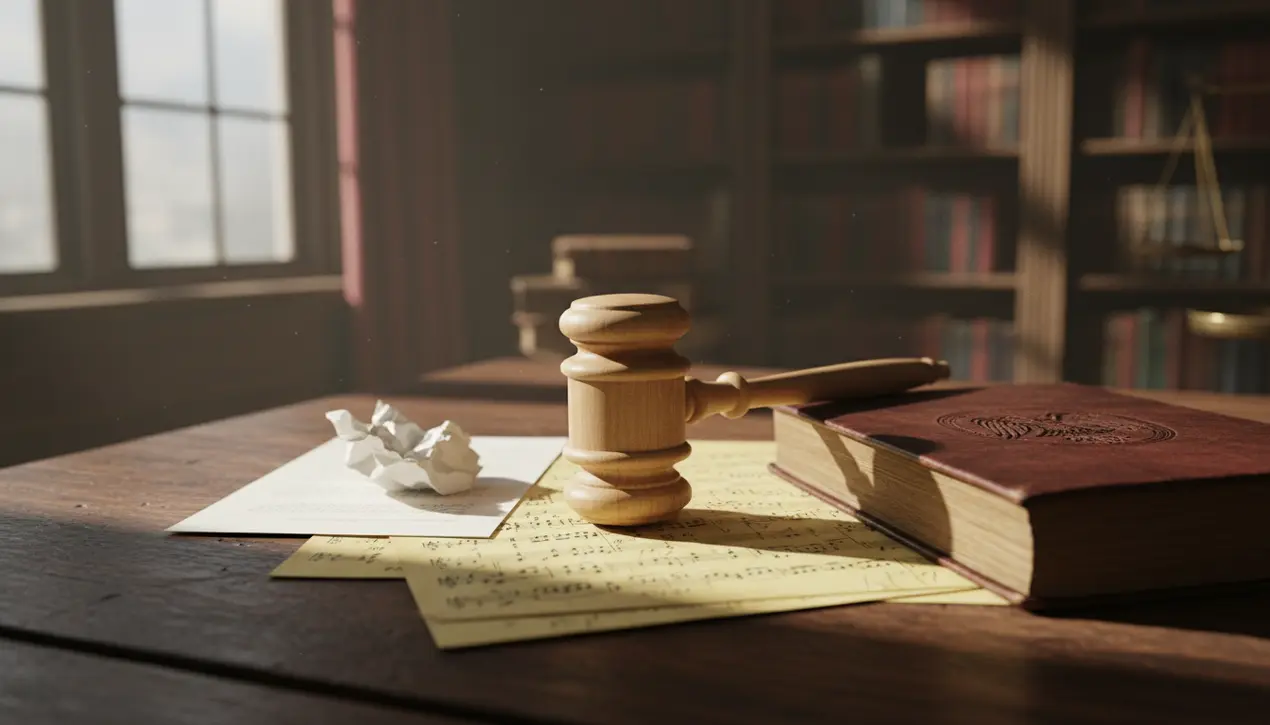
EntertainmentcelebritiesLegal Issues
Judge dismisses malicious prosecution suit against Don Henley.
BR
Brian Miller
20 hours ago7 min read
In a legal denouement that felt less like a dramatic finale and more like a needle skipping off a worn-out record, a judge has formally dismissed the malicious prosecution suit brought by rare books dealer Glenn Horowitz against Don Henley, the iconic Eagles drummer and vocal guardian of his own legacy. This case, a sprawling legal opera that began with the disputed ownership of Henley's personal handwritten notes and early lyrics, has finally reached its coda after the criminal case against Horowitz and his co-defendants was abruptly abandoned last year.For those who've followed this saga, it's a familiar refrain: the intense, almost sacred value artists place on their creative ephemera clashing with the opaque, high-stakes world of rare document collecting. Horowitz, a seasoned dealer who operates in the rarefied air where cultural history meets immense wealth, argued that the entire criminal prosecution was a baseless, vindictive pursuit orchestrated by Henley after the musician realized he may have inadvertently signed away his rights to these priceless notebooks.The judge's ruling to toss the suit, however, signals that the legal system saw insufficient evidence to support the claim that Henley and his attorneys acted with malice, essentially finding that while the criminal case fell apart, its initiation wasn't necessarily a weaponized abuse of process. This entire episode reads like a B-side to a better-known hit—a complex, messy behind-the-scenes story about ownership, memory, and the sometimes-blurry line between preservation and possession.Henley, ever the meticulous curator of the Eagles' mythos, has always treated these lyrics and notes not as mere collectibles but as the very DNA of his life's work; his fierce protection of them is a theme as consistent throughout his career as the haunting harmonies in 'Hotel California. ' On the flip side, the rare book world, with its unspoken codes and private transactions, often views such materials as artifacts for scholarly and public appreciation, a perspective that can seem coldly transactional to the artist who lived the moments inscribed on those pages.The dismissal leaves a lingering dissonance. For Horowitz, it's a partial vindication, a confirmation that the case against him should never have reached a courtroom, yet he's left without legal recourse for the reputational and financial toll of the ordeal.For Henley, it closes a contentious chapter but doesn't fully erase the questions raised about the provenance and chain of custody of his own creative output. Like a classic rock anthem dissected for hidden meanings, this case reveals the profound tension in the art world: when does a personal diary become a public commodity, and what lengths are justified to reclaim a piece of one's own past? The final gavel may have fallen, but the echoes of this legal battle will undoubtedly resonate through the halls of both the music industry and the rare documents trade for years to come, a cautionary tale set to a familiar rhythm of passion, pride, and the high price of history.
#Don Henley
#Eagles
#stolen lyrics
#malicious prosecution
#lawsuit dismissed
#featured
Stay Informed. Act Smarter.
Get weekly highlights, major headlines, and expert insights — then put your knowledge to work in our live prediction markets.
Related News
Comments
Loading comments...
© 2025 Outpoll Service LTD. All rights reserved.